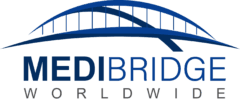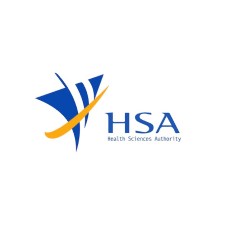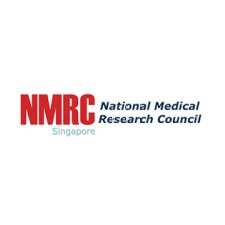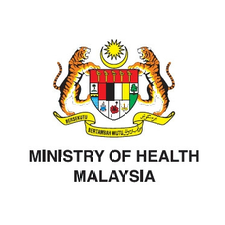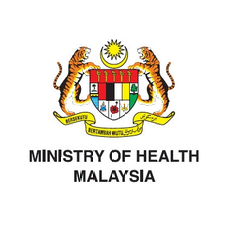ONCOLOGY STEM CELL THERAPY
Bridging Care, Building Trust
Oncological Conditions Addressed by Stem Cell Therapy
Stem cell therapy offers innovative adjunctive solutions for malignancies through targeted biological repair. Key applications include:
- Hematologic Cancers: Leukemia, lymphoma, multiple myeloma
- Solid Tumors: Breast, lung, prostate (supportive role)
- Treatment Complications: Graft-versus-host disease (GVHD), chemotherapy-induced tissue damage
- Immunotherapy Support: Enhancing CAR-T cell efficacy
What Is Oncology Stem Cell Therapy?
A specialized approach using undifferentiated cells to:
- Rebuild Healthy Tissue after chemo/radiation
- Boost Anti-Tumor Immunity
- Deliver Targeted Therapies
Key Cell Types:
Hematopoietic Stem Cells (HSCs)
Primary Role: Replenish and reconstruct the blood-forming and immune systems.
Source: Harvested from bone marrow, peripheral blood, or umbilical cord blood.
Clinical Applications: Used in treating leukemia, lymphoma, aplastic anemia, sickle cell disease, and immunodeficiencies. They also support immune system reset in autoimmune conditions like multiple sclerosis through autologous HSC transplantation (aHSCT), which can induce long-term remission in relapsing-remitting MS patients.
Mesenchymal Stem Cells (MSCs)
Primary Role: Modulate immune responses and support tissue repair through anti-inflammatory and regenerative signaling.
Source: Derived from bone marrow, adipose tissue, or umbilical cord.
Clinical Applications: Widely used to treat graft-versus-host disease (GVHD), Crohn’s disease, autoimmune conditions, tissue injuries, orthopedic disorders, neurological injury, and heart repair. MSCs also assist in hematopoietic recovery after CAR‑T therapy without compromising its efficacy.
CAR‑T Cells (Chimeric Antigen Receptor T Cells)
Primary Role: Engineered T cells designed to recognize and destroy specific cancer cells.
Source: Patient-derived T cells or, in some cases, from healthy donors; genetically modified in the lab to express CARs targeting tumor antigens (e.g., CD19).
Clinical Applications: Approved for certain blood cancers such as B-cell leukemia and lymphoma. Ongoing research focuses on enhancing delivery and combining CAR‑T with MSC support to improve efficacy and reduce side effects.
Ethical Compliance
MediBridge programs exclusively utilize adult-derived and perinatal cells—such as HSCs from cord blood or MSCs from bone marrow/fat/cord—never embryonic or blastocyst-derived cells, ensuring full adherence to ethical principles and regulatory norms.
Key Scientific Features
Triple-Action Mechanism
- Regeneration:
- HSCs rebuild bone marrow obliterated by high-dose chemo
- MSCs heal radiation-damaged organs (lungs, intestines)
- Immunomodulation:
- MSCs suppress GVHD in transplant patients
- Targeted Attack:
- CAR-T cells engineered to hunt CD19/BCMA cancer markers
Safety Protocols
- Tumor Risk Mitigation: 3-stage purification removes malignant cells from autologous transplants
- CRS Management: Tocilizumab on standby for CAR-T cytokine storms
Clinical Implementation
Treatment Workflow
- Cell Harvesting:
- Apheresis for HSCs/CAR-T cells (peripheral blood)
- Mini-liposuction for MSCs
- Processing:
- HSCs: Cryopreservation
- CAR-T: Genetic modification + expansion (2–3 weeks)
- MSCs: Lab amplification
- Delivery:
- IV Infusion: HSCs/MSCs
- Intrathecal/Lymphatic: CAR-T for CNS tumors
Combination Approaches
- Transplant Protocols: High-dose chemo → HSC rescue
- Adjunct Therapy: MSCs + CAR-T to reduce neurotoxicity
Advantages Over Conventional Cancer Care
- Life-Saving Potential:
- 60–80% 5-year survival for relapsed leukemia with HSC transplant
- 83% response rate in refractory lymphoma with CAR-T
- Tissue Protection:
- MSCs reduce severe oral mucositis by 47%
- Precision Targeting:
- CAR-T achieves remission where chemotherapy fails
- Curative Potential:
- Some CAR-T patients remain cancer-free >10 years
Why MediBridge Leads in Oncological Stem Cell Care
Scientific Excellence
- Cell Vetting:
- Flow cytometry validation of CD34+ HSCs
- 99.8% tumor cell depletion in autologous products
- Novel Protocols:
- MSC “shield” therapy during radiation
- Halal-certified biologics for OIC patients
Patient-Centered Model
- Cross-Border Advantage:
- Singapore: Pre-treatment diagnostics at Mount Elizabeth/Gleneagles.
- Malaysia: Treatment at Prince Court Medical Centre (40% cost savings).
- Halal-Certified Biologics: JAKIM-compliant MSCs for OIC patients.
- Cost Transparency:
- Allogeneic HSC transplant: MYR 350,000 (vs. USD 800K+ in US)
- Includes 30-day accommodation
Comprehensive Support
- Pre-Treatment:
- AI eligibility screening
- Fertility preservation coordination
- During Therapy:
- Multilingual oncology nurses
- Halal nutritional support
- Post-Treatment:
- 24-month remote monitoring
- Relapse surveillance protocols
The Future: 2025–2030 Innovations
- Off-the-Shelf CAR-T: Eliminating 3-week manufacturing wait
- MSC “Drug Ferries”: Delivering chemo directly to tumors
- iPSC-Derived NK Cells: Next-generation solid tumor therapy
“We don’t just treat cancer – we rebuild lives decimated by it.”
— MediBridge Oncology Director
Begin Your Healing Journey
MediBridge Provides:
Evidence-based protocols
Fast-track medical visas
Luxury recovery environments
88% patient satisfaction (2023–2025)
Ready to Begin Your Healthcare Journey?
Get a free consultation with our medical experts to discuss your treatment options
